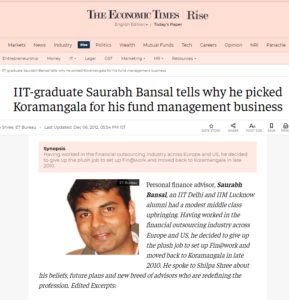A seemingly simple concept, Asset Allocation is far difficult to practice. It is one of the critical aspects of managing the portfolio yet the first to go out the window as human emotions (greed and fear) take control.
A study by Dalbar Research has found that average investor in all U.S. stock funds earned 3.7% annually over the past 30 years—a period in which the S&P 500 stock index returned 11.1% annually. That means stock-fund investors underperformed the market by approximately 7.4 percentage points annually for three decades.
So why do average investors realize much lesser returns than what markets have to offer?
Here are some thoughts:
1) Rear view mindset
We invest today to realize returns in future. However, time and again, one sees a mad rush towards the asset class which has done well in recent past. For most investors, performance of last 1 and 3 yrs weighs the most in choosing the fund. If we look in recent past, one would notice that trend – Gold in 2012, Real Estate in 2013, Equity in 2014, Mid and Small Caps in 2015.
2) Peer Pressure
We are influenced by people around us far more than we may realize. When everybody around is going in one direction, it takes a lot of courage to go in another. There is this fear that one is not be left behind, going along with the group gives a sense of comfort.
3) Counter-intuitive
Every asset class undergoes mean reversion. Booking profit in an asset class which has done well in recent past and moving to another which has not done well is not easy. One would seem like a fool to doing opposite of the conventional wisdom.
4) Conviction
Taking a different stance is difficult by itself, sticking to it is even more difficult. Even if one manages to identify which asset class will do well in future, conviction will be severely tested while the actual transition will happen in the market.
Thomas Gibson wrote that majority buys at the top of the cycle and stay away when the market crashes. His observation still holds true, almost 100 years since he wrote that book.
Note: Readers are not authorized to copy or reproduce this article. Please write to sure.response@finatwork.com for further clarifications.




